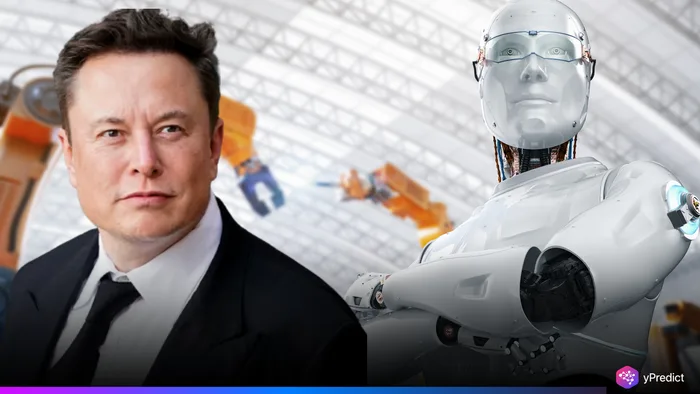
Elon Musk has never shied away from betting big on technology. His early investments in AI, long before most industries recognized its potential, are paying off in ways few imagined. Musk’s bold vision, of turning Tesla into an AI-powered entity, is not limited to just car manufacturing. It now defines how industrial companies must operate if they hope to remain competitive.
The heart of this strategy lies in what Musk calls the AI factory. More than just a physical space, it’s a system of software, hardware, and data working together to improve performance, automate decisions, and scale innovation. Tesla’s two factories rely heavily on this AI-driven system, powering everything from self-driving capabilities to production line optimization. As Musk puts it, if you’re not an AI company, you’re not really an industrial company anymore.
What Is an AI Factory and Why Does It Matter?
An AI factory is not strictly servers and models. Rather, it is a complete digital ecosystem that ingests high-velocity data, trains models, deploys decisions, and nurtures learning. In Tesla’s case, it ties together information from vehicle telemetry, software logs, sensor data, and manufacturing inputs to create useful impacts in real-time throughout the overall company.
While factories focus on optimizing physical production, AI factories focus on optimizing intelligence. They are not simply making products, but generative engines for improved decision-making. This perspective is transforming the way companies consider operational business efficiency, customer experience, and long-term scalability.
Tesla Is Leading the AI-Industrial Revolution
Tesla is not just an automaker, it’s now a technology-driven industrial AI company. Musk’s insistence on owning the full AI stack, from chips to software, is a strategic moat that competitors struggle to cross. Tesla’s Dojo supercomputer and neural networks give it an edge in autonomous driving that others are years behind.
But this tech advantage also scales beyond the car itself. Inside Tesla’s Gigafactories, AI helps manage inventory, reduce downtime, and streamline energy use. These AI-powered efficiencies don’t just cut costs, they enable Tesla to innovate faster and at a larger scale than traditional manufacturers.
Why Every Industry Must Embrace the AI Factory Model
Musk’s message is clear: industries must evolve or perish. The traditional way of operating, isolated departments, human-heavy decision-making, and linear production, is fading fast. The AI factory model introduces a loop of continuous learning, improvement, and automation.
Whether you’re making cars, ships, or sneakers, the logic applies. Industrial companies that fail to build their own AI factories will fall behind, not just in productivity but in innovation speed and adaptability. Leaders must now think of data pipelines and model deployments as seriously as supply chains and logistics.
The Future of Industrial AI Starts Now
Elon Musk’s early bet on AI wasn’t just about cool tech, it was a bet on survival and dominance. As AI reshapes every industry, companies must follow Tesla’s lead. Building an AI factory isn’t optional anymore, it’s the price of staying in the game.
Musk recognized that his cars needed embedded intelligence. So, he built the infrastructure to support it. The same holds true for any industry today. Intelligence is the new steel. Data is the new fuel. The AI factory is the new assembly line.






